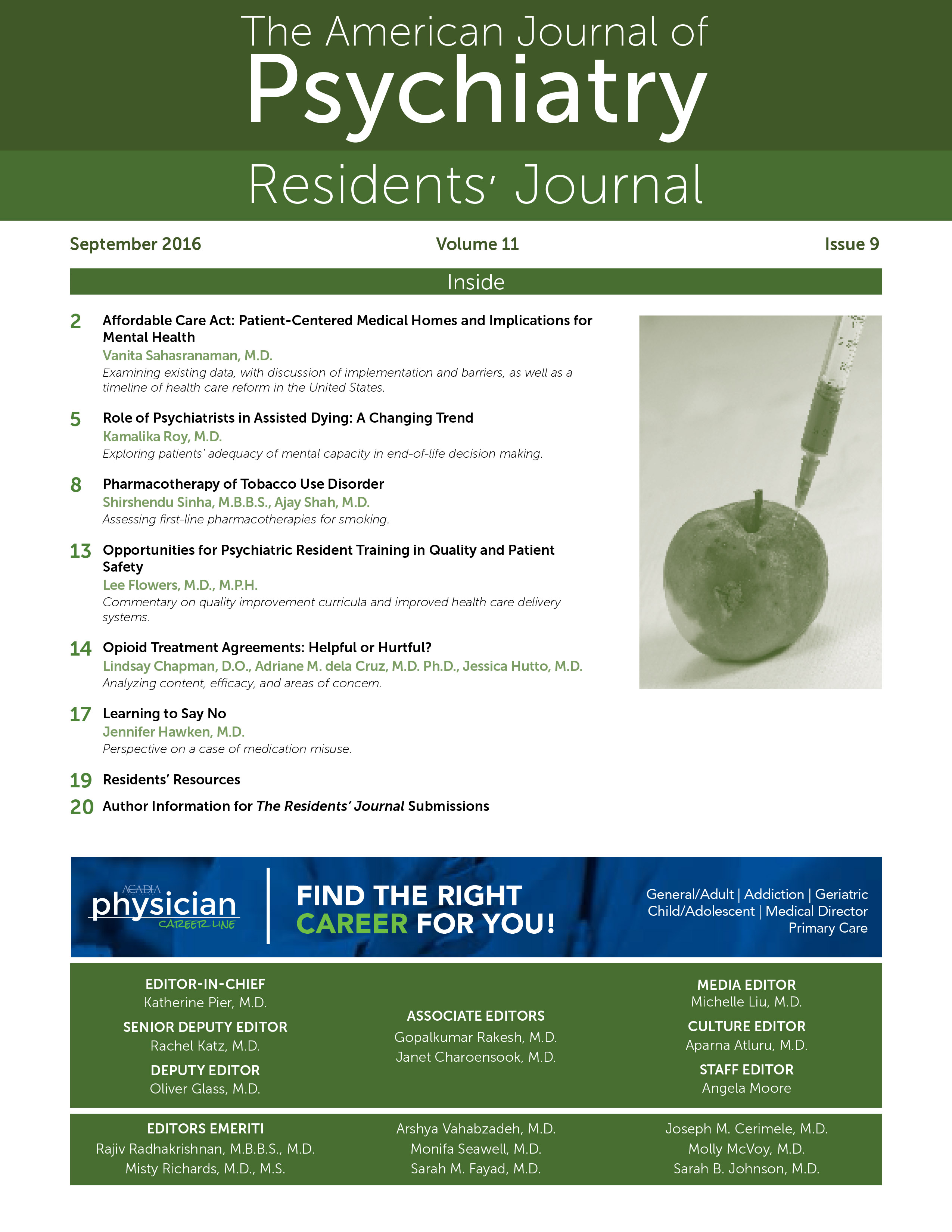Learning to Say No
During my intern year on the medical wards, I treated a woman whose medical record contained multiple instances of medication-seeking behavior. Within moments of receiving sign-out, I received a page from the patient’s nurse. The patient was crying and needed to see a doctor immediately, her nurse said.
I went to the patient right away; we spoke only briefly before she asked for intravenous pain, nausea, and allergy medications. She stated that those specific medications were the only things that helped. Furthermore, she could not receive them in any other route, as they would not be effective. On my exam, there were no clinical signs to support her reported symptoms. I was in the uncomfortable situation of my observations being at odds with the patient’s report.
I gently explained my hesitations to using these medications and offered alternatives. She was angry and asked for a social worker, nurse manager, and more senior doctor to be present. She accused me of being uncaring and committing malpractice. I felt myself growing increasingly frustrated but discussed the case with my team and her outpatient providers, and all were in agreement with my assessment.
After rounds, the team reconvened with the patient and told her she could not receive the medications that she was requesting. The patient turned to me and repeated the same accusations as before, now echoed to the group. Everyone was silent. The patient said she was willing to be discharged, so no one stood up and disputed her claims for fear she would recant.
This was a fairly clear case of substance use disorder, and as a psychiatrist in training, I felt I should have known what to do or how to do it better. I had the support of my colleagues, including the practitioners who knew her best. But I froze when she levied her frustrations at me. Reflecting on the situation, I realized that I was trying to address a problem that the patient did not yet have insight into.
As physicians, we strive to fix, treat, and heal. When asked for a medication to treat a distressing symptom, instinct calls us to agree. As a new trainee, I found it uncomfortable and difficult to tell a patient no, even when it was not clear a treatment was medically appropriate or necessary. In some situations, I felt a temptation to acquiesce simply to avoid arguments, tension, or, most concerning, maybe just more time and effort. The consequence of medicating against our better judgment is that addictive or euphoria-inducing medicines are dosed and increased with the possibility of causing major damage to the patient’s health and wellness. On a larger scale, the current opiate crisis illustrates the real danger of this approach. Although it can be difficult, we must not be afraid to compassionately say no to our patients so that we can ultimately do right by them—to uphold the oath we swore to first do no harm.



